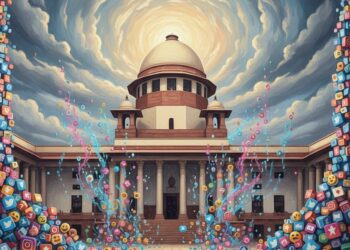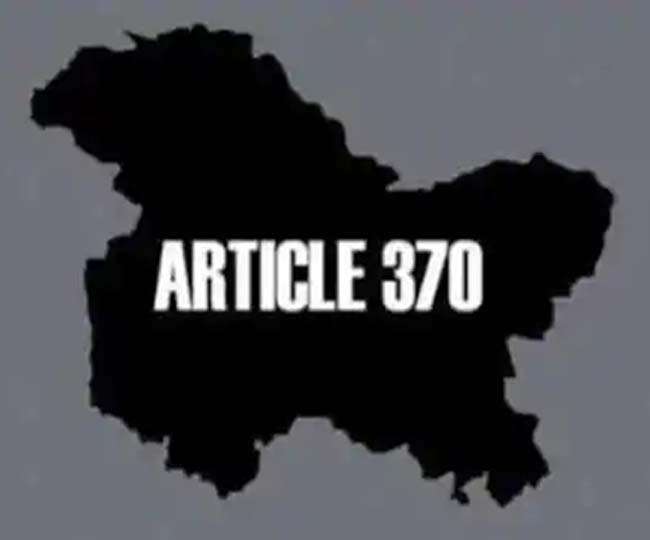When a two-judge Bench of the Supreme Court ruled that irretrievable breakdown of marriage was not a ground for divorce, it not only ran contrary to the spirit of the law but also breached the principle of ‘stare decisis’.
In the recent case of Vishnu Dutt Sharma v. Manju Sharma (Civil Appeal no. 1330 of 2009; decided on February 27, 2009), the Supreme Court dealt with a plea of ‘irretrievable breakdown of marriage’ and the two-judge Bench of Justice Markandey Katju and Justice V.S. Sirpurkar denied divorce for the reason that the ground pleaded was not available under Hindu Marriage Act. While subjective satisfaction of the court is above and beyond question, the interpretation of law and its applicability can always be examined.
The Bench said:
On a bare reading of Section 13 of the Act, reproduced above, it is crystal clear that no such ground of irretrievable breakdown of the marriage is provided by the legislature for granting a decree of divorce. This Court cannot add such a ground to Section 13 of the Act as that would be amending the Act, which is a function of the legislature.
 It is a settled principle of law that if there is a lacuna in a law that causes hardship or there is no law that could take care of a certain situation, the courts can step in to save the day by laying down the law and thus filling the vacuum. Simply because the legislators failed to foresee a situation is no reason for the courts to send a suffering petitioner back to wait until the legislature is not only cognizant of the kind of situation he is in but also does something about it. Courts of law are courts of justice and are, therefore, empowered to use all legitimate means at the disposal of the state to meet the ends of justice and provide due relief. And that’s because the law exists for the sole purpose of securing justice. It naturally follows that if and when the law falls short of doing that, its deficiency has to be promptly remedied. Therefore, when a court lays down a law, it does not usurp the essential function of the legislature, but supplements it in the interest of justice so long as the spirit of the law is not compromised.
It is a settled principle of law that if there is a lacuna in a law that causes hardship or there is no law that could take care of a certain situation, the courts can step in to save the day by laying down the law and thus filling the vacuum. Simply because the legislators failed to foresee a situation is no reason for the courts to send a suffering petitioner back to wait until the legislature is not only cognizant of the kind of situation he is in but also does something about it. Courts of law are courts of justice and are, therefore, empowered to use all legitimate means at the disposal of the state to meet the ends of justice and provide due relief. And that’s because the law exists for the sole purpose of securing justice. It naturally follows that if and when the law falls short of doing that, its deficiency has to be promptly remedied. Therefore, when a court lays down a law, it does not usurp the essential function of the legislature, but supplements it in the interest of justice so long as the spirit of the law is not compromised.
Reading irretrievable breakdown into the Hindu Marriage Act as an independent, standalone ground for divorce is consistent with the scheme of the Act and is pursuant to the legislative intent because irretrievable breakdown of marriage supplies the sole justification for the divorce law to exist. But for irretrievable breakdown, divorce law would not be required. Therefore, denying divorce despite irretrievable breakdown of marriage is contrary to the legislative intent and defeats the very object of the enactment. The legislative intent behind the Act is to allow divorce in case of an irretrievable breakdown and not to artificially ‘preserve’ marriage. (Also see: Divorce: Irretrievable breakdown needs no legislative reaffirmation)
The Court further says:
Learned counsel for the appellant has stated that this Court in some cases has dissolved a marriage on the ground of irretrievable breakdown. In our opinion, those cases have not taken into consideration the legal position which we have mentioned above, and hence they are not precedents. A mere direction of the Court without considering the legal position is not a precedent.
The subjectivity introduced through the expression ‘in our opinion’ stands good and unquestionable provided the opinion drawn could be logically drawn on the basis of the relevant material or in a given set of circumstances.
In Naveen Kohli v. Neelu Kohli (Civil Appeal no. 812 of 2004; Decided on March 21, 2006), a three-judge Bench of Justice B.N. Agrawal, Justice A.K. Mathur and Justice Dalveer Bhandari considered irretrievable breakdown separately and specifically, and begins by saying:
Irretrievable breakdown of marriage is not a ground for divorce under the Hindu Marriage Act, 1955. Because of the change of circumstances and for covering a large number of cases where the marriages are virtually dead and unless this concept is pressed into services, the divorce cannot be granted. Ultimately, it is for the Legislature whether to include irretrievable breakdown of marriage as a ground of divorce or not but in our considered opinion the Legislature must consider irretrievable breakdown of marriage as a ground for grant of divorce under the Hindu Marriage Act, 1955.
Interestingly, the legal position considered is exactly the same legal position that the Bench in Vishnu Dutt Sharma case says was ‘not taken into consideration’.
The Court in Naveen Kohli case mentions with approval the 71st Report of the Law Commission of India, wherein the Commission strongly recommends irretrievable breakdown of marriage as a ground for the dissolution of marriage. The Bench further considers the legal position in the foreign countries like New Zealand where irretrievable breakdown works as a valid ground for divorce. The Bench also cites the Report of Moral and Social Welfare Board accepted by the General Assembly of the Church of Scotland on May 22, 1969, wherein the breakdown of marriage has been considered to be a ground good enough to grant divorce. The Bench further says:
We have been principally impressed by the consideration that once the marriage has broken down beyond repair, it would be unrealistic for the law not to take notice of that fact, and it would be harmful to society and injurious to the interests of the parties.
The Bench then considers the conflicting viewpoints of the jurists and says:
The other majority view, which is shared by most jurists, according to the Law Commission Report, is that human life has a short span and situations causing misery cannot be allowed to continue indefinitely.
Thenceforth the court turns to the case in hand and points out the mutually belligerent approach of the couple and the sheer number of criminal and other proceedings initiated by the parties against each other, and observes:
Even at this stage, the respondent does not want divorce by mutual consent. From the analysis and evaluation of the entire evidence, it is clear that the respondent has resolved to live in agony only to make life a miserable hell for the appellant as well. This type of adamant and callous attitude, in the context of the facts of this case, leaves no manner of doubt in our mind that the respondent is bent upon treating the appellant with mental cruelty. It is abundantly clear that the marriage between the parties had broken down irretrievably and there is no chance of their coming together, or living together again.
Thus, a resistance to divorce by one party despite an undeniable breakdown may itself be looked upon as an instance of mental cruelty.
It is amply clear from the above discussion that that the legal position of irretrievable breakdown of marriage as a ground for divorce was very extensively considered by the Supreme Court in Naveen Kohli case and the facts of the case were also examined to ascertain if there was an irretrievable breakdown of marriage in this case. And it was only when the Bench arrived at the conclusion that the marriage had irretrievably broken down that the divorce was finally allowed. In this case it is very unlikely that the divorce could be granted without treating irretrievable breakdown as a ground for divorce. Therefore, it forms the ratio decidendi of the case by all means and is not obiter dicta. It was a three-judge Bench, which makes the decision binding on the two-judge Bench in Vishnu Dutt Sharma case by operation of the doctrine of precedent.
Hence, when the Bench in Vishnu Dutt Sharma case implies that ‘legal position’ was not considered or the decisions were ‘mere directions’ forming no precedents, it is difficult to agree with it. It was open for the Court to say without affecting the outcome of the case that in its opinion there was no breakdown. But the precedent value of a judgment is rarely open to a subjective take.
However, the greater problem now is that if the Bench erred in appreciating the precedent value of a previous judgment and consequently failed to apply the relevant legal position, it technically ended up applying the wrong law, which renders the judgment legally infirm.
The legal position of irretrievable breakdown remains unaffected by theVishnu Dutt Sharma case, as the Naveen Kohli case retains its precedent value, being the judgment by a larger Bench.
Also see: Divorce: Irretrievable breakdown needs no legislative reaffirmation and The ‘breakdown’ story.
Published on my WordPress Blog on May 14, 2009.







